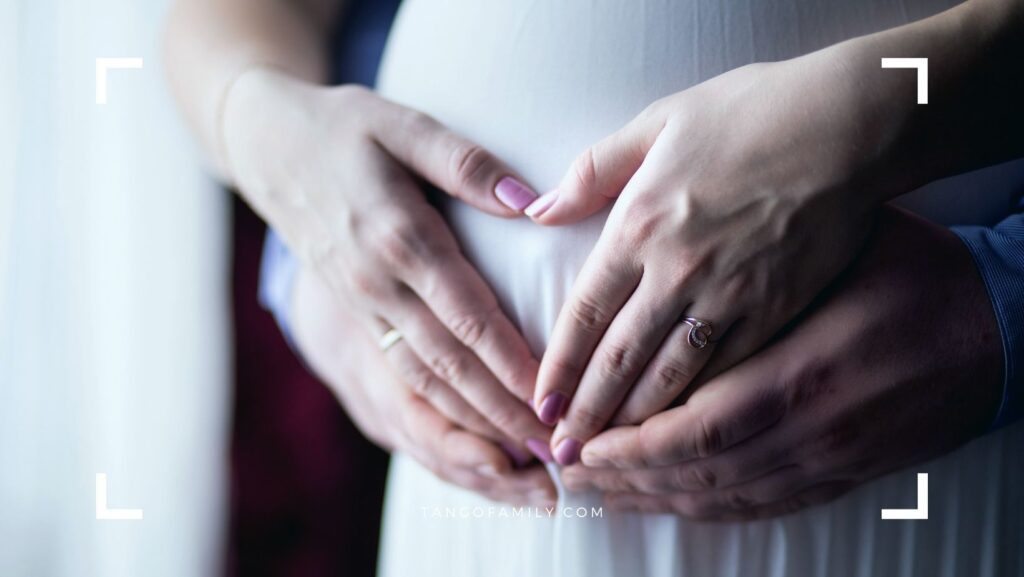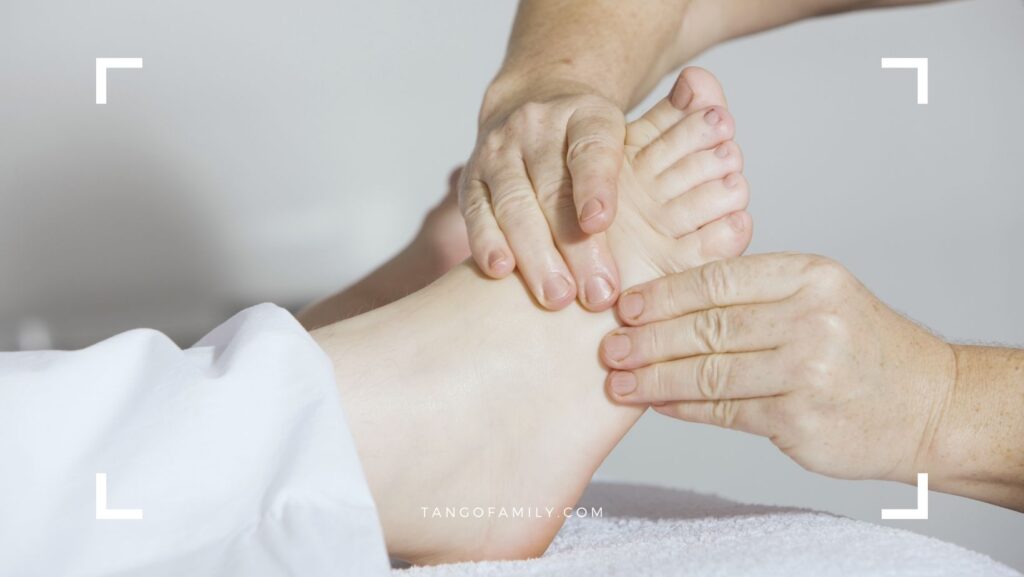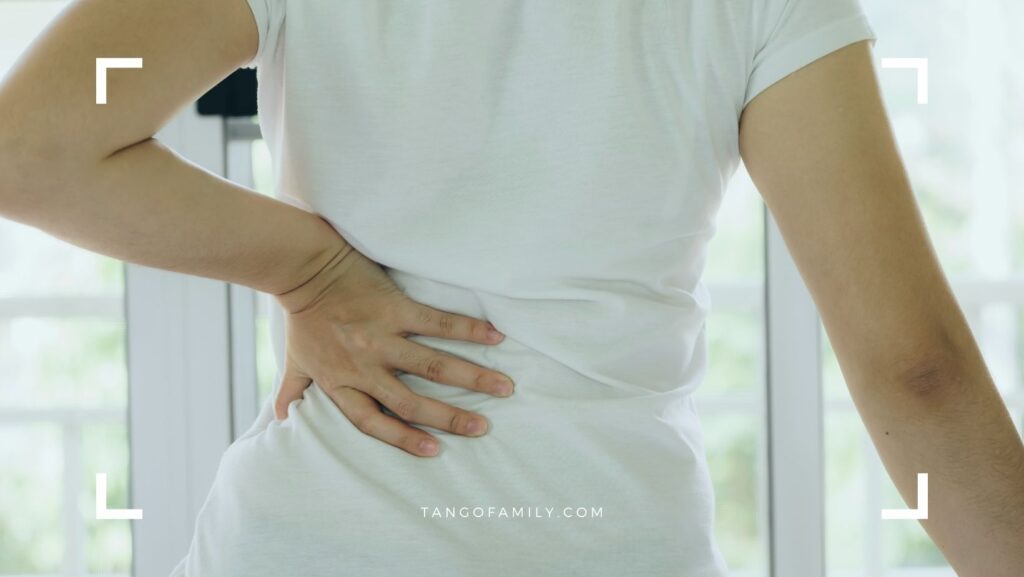The pregnancy period in women is a time of physical and emotional changes. These changes might vary from woman to woman, but most women experience at least one of the common pregnancy symptoms in women.
The pregnancy period begins on the first day of a female’s last menstrual cycle before conception and ends with childbirth.
Pregnancy is divided into three trimesters and each trimester has specific characteristic symptoms and changes in the mother’s body and the baby’s body.
1. First Trimester Symptoms: The first 3 months are always considered as the initial phase of pregnancy when pregnancy symptoms are at their prime time or highest level. It starts with the implantation of the fertilized egg into the uterus and ends with the 1st missed period.
2. Second Trimester Symptoms: This trimester is known as the golden period of pregnancy when pregnancy symptoms in women are at their lowest level. It spans from the 4th month up to the 7th month or the 2nd missed menstrual cycle.
3. Third Trimester Symptoms: This trimester starts with the 7th month and pregnancy symptoms in women gradually increase in intensity until the delivery day comes. It spans from the 7th month up to the delivery time.

During pregnancy, there are some pregnancy symptoms in women that every pregnant woman needs to be aware of including nausea or morning sickness, fatigue, breast tenderness, food cravings, heartburn, swollen ankles and feet, mood swings, backaches, leg cramps.
Although pregnancy can feel exhausting at times. It is very important not to ignore these pregnancy symptoms in women as they might develop into more serious conditions if mistreated.
Read: Reasons for having Headache During Pregnancy
Physical and Emotional changes during Pregnancy Period:
The following are some of the common physical and emotional changes during pregnancy period women may experience:
Morning sickness or nausea
Most pregnant women feel queasy or nauseated for a number of reasons during pregnancy. Although it may not be pregnancy-related, these feelings may also arise due to stress, fatigue, lack of sleep, or anxiety. Nausea and vomiting often start around the 6th week of pregnancy and are called morning sickness.
However, do not worry if you vomit a few times a day during pregnancy. You need not be concerned with your baby’s health as most babies are unaffected by this situation and pregnancy usually causes complete recovery from nausea after about 12 weeks.
The best way to deal with morning sickness is to eat dry foods like crackers several times a day and drink lots of water between meals time which will help in keeping the stomach settled down. Avoid greasy or fried food items as they may worsen your condition.
Fatigue
As pregnancy progresses, women tend to feel tired and exhausted due to the increasing weight of pregnancy. This is because pregnancy increases the demand for more oxygen and food which may cause fatigue.
Fatigue during pregnancy can also be caused due to lack of sleep or rest as pregnancy is accompanied by a number of physical changes in a pregnant woman’s body, It will affect her sleeping pattern and require more time for rest.
To combat pregnancy fatigue, it is best to get lots of rest which means that you should have regular naps during the daytime. Also, avoid any form of stress by taking up some pregnancy exercise classes.
Read: How to move on after divorce as a woman?
Breast tenderness
Breast tenderness as early as 2 after conception (before missed period) is a normal pregnancy-related symptom. It is because of the increased levels of progesterone hormone.
However, the breast tenderness may be intense if you do not get adequate rest. If your breasts become very tender during pregnancy. You can take acetaminophen (a pain reliever) for relief from pain as long as it does not cause any harm to your pregnancy.
Food cravings

Some women also experience food cravings during pregnancy due to lower blood sugar levels which may make them feel hungry and irritable even when they are full.
At this time, you should eat small amounts frequently and avoid sweets like chocolates or ice creams. These will only worsen the condition by causing nausea or vomiting. You need to eat healthy and nutritious pregnancy foods at this time.
Heartburn
Heartburn is a pregnancy-related problem that occurs because pregnancy causes relaxation of the valve between the esophagus and stomach, causing acidic contents in your stomach to flow backward into your esophagus.
Heartburn during pregnancy can be made worse by eating fatty or fried food items. It tend to remain undigested leading to heartburn.
Eating small meals frequently and avoiding such food items will help ease your condition. You may also want to raise the head end of the bed by placing wooden blocks, so that you sleep with your head raised above your waistline and sleep on one side rather than lying down flatly. This will ease heartburn and help in reducing indigestion and discomfort while sleeping.
Read: How to move on after divorce as a woman?
Swollen ankles and feet

Pregnant women may also experience swollen legs and feet, particularly in the late pregnancy period caused by fluid and blood retention and edema (swelling).
As pregnancy progresses, the uterus will become enlarged causing pressure on your veins which you can ease by lying down flat for a half hour or so with your legs raised above your hips several times a day. Warm water foot baths will also help to reduce the swelling.
In addition, apply ice packs wrapped in cloth around your lower legs several times a day to reduce the swelling of feet and ankles after pregnancy.
Mood swings
In pregnancy period, mood swings are often experienced by women which vary from time to time and from pregnancy to pregnancy.
Mood swings in pregnancy period are caused due to the fluctuating levels of hormones. The fluctuating levels of hormones are responsible for mood regulation in women. They causing women to feel sad or happy, anxious or nervous at different times in pregnancy period.
Women will also experience mood swings during pregnancy if they have gone through a number of emotional experiences before pregnancy such as the death of close family members, loss of job, or divorce which can affect their mental health badly.
Headache

Headaches are frequent throughout pregnancy. Tension headaches are common throughout the first trimester of pregnancy. This might occur as a result of the numerous changes you’ve experienced in a short amount of time.
Headache discomfort can occur in the second and third trimesters of pregnancy for a variety of causes. Headaches in your mid- to late-pregnancy might have significant consequences.
Backache

Pregnancy-related backache is very common among expecting mothers, especially in late pregnancy due to an enlarged uterus pressing on your back making you lean forward which puts pressure on your spine.
Backache is made worse by standing for long hours. It is advised that pregnant women take short breaks during work or any other activity to rest for a while. You can also try pregnancy back pain relief products that are available in the market specially designed for pregnant women.
Leg cramps
Leg cramps are most common among pregnant women in their third trimester of pregnancy caused by many factors including calcium deficiency, fluid retention, or pregnancy-related varicose veins with leg muscles contracting tightly causing sharp pain in your legs when you stretch out your toes when the muscles contract again drawing your foot upwards towards your shin.
Leg cramps can be mitigated during pregnancy by increasing intake of calcium-rich food items such as cheese, milk, and yogurt. Its also can be mitigated during pregnancy by avoiding standing still for long hours. Raising the head end of the bed on wooden blocks several times a day to ease blood circulation.
Conclusion
Pregnancy can be accompanied by several physical and emotional changes which you may need to get used to especially during the first pregnancy.
Always remember that pregnancy is not a disease but just a natural process in your body while taking care of your health, knowing what to expect during pregnancy will help ease the process for you.
Pregnancy remedies are often necessary when dealing with pregnancy issues. The condition occurs due to different reasons, making it complex over time. Most pregnant women experience pregnancy through nausea, breast tenderness, fatigue, back pain, leg cramps, etc.
Pregnancy usually exhibits itself at different stages for different women. The above-mentioned problems should however not be ignored or taken for granted if they show up in an expected pregnancy. They should be confronted and checked thoroughly to avoid causing pregnancy complications. Hope you found this acrticle based on physical and emotional changes during pregnancy period In women.





